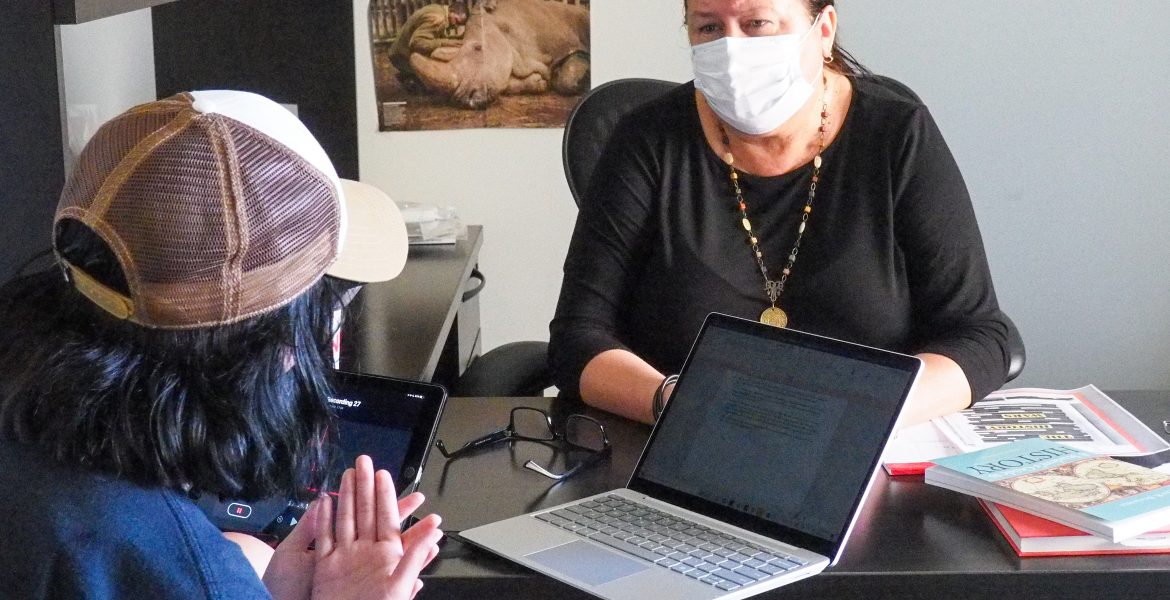In April 2021, President Joe Biden announced the withdrawal of American troops in Afghanistan. As plans to evacuate proceeded, the Taliban made gains across the country, instilling worry among Afghans.
Dr. April Najjaj, assistant professor of history, discussed the situation in Afghanistan and what it may mean for women in the country in an interview with The Mesquite Aug. 25.
“For those 20 years (that the U.S. was in Afghanistan), Afghan people saw something different,” said Najjaj. “They saw something better. It gave a whole generation education and opportunities that many of them wouldn’t have had otherwise.”
In the ‘50s and ‘60s, the country was relatively secular. When the Soviet Union invaded Afghanistan from 1979 to 1989, Islam was used as a tool by Afghans to resist Soviet rule, she said.
Najjaj said that in the Muslim world, communists are thought to be atheists so their religion was used to protest.
“A nation state and democracy are Western inventions,” Najjaj said. “It’s hard to take those ideas and transplant them in a non-Western society…. Oftentimes in the Muslim world, when people want to reinforce their traditional values ㅡ they turn to religion.”
She said the Taliban, which translates to “students” in Arabic, grew under Soviet rule.
“The Taliban were students who claimed to be learning about religion,” Najjaj said. “The problem is they learned a very conservative version of it.”
Najjaj said because Afghans honor tribal allegiances and family loyalty rather than loyalty to the government, the Taliban gained control of the country from 1996 until 2001 ─ where they imposed their conservative interpretation of Islam.
But Islamic law is not unified, Najjaj said.
“In the variations of Islamic law, there are variations in women’s rights,” Najjaj said. “In the religion, women have more rights than they know oftentimes.”
She said the interpretation of Islamic law by men reduced women’s rights.
“It’s not about religion ㅡ it’s about political power,” she said. “They use religion as a tool to get political power and keep it.”
Under Taliban rule prior to U.S. occupation, women were not allowed to attend universities or educate themselves; few women held jobs outside of the household, and were expected to dress ultraconservative, Najjajj said.
Najja said Many women didn’t try to resist these rules because the idea of protesting is a Western concept.
“In the time that the U.S. stayed there, they gave an entire generation of Afghans another kind of society in terms of women being able to own businesses, have more personal freedom and have a place in the public space,” Najjaj said.
Najjaj said many are afraid the Taliban will impose the conservative interpretation of Islam held before.
The issue going forward is uncertainty and control, Najjaj said.
The Taliban has made noise about being more enlightened and progressive, but Taliban fighters come from various parts of the Muslim world and some may not be literate ㅡ which can cause issues reading identification documentation, she said.
“Those kinds of people are the people that the Taliban leaders have intentionally recruited because they are more inclined to follow that hard religious line that the Taliban has done in the past,” Najjaj said.
She notes how much Afghans helped American troops and it’s important for the U.S. to honor its commitment.
“We owe them. They went out on a limb for us…,” she said. “We would’ve never been able to function in Afghanistan without the translators, the interpreters and the people who knew how the culture worked.”
Najjaj said she is pleased that so many Americans are willing to have Afghans refugees move to the United States and hopes those opposed will have a change of heart.
“When you think about what it’s like to be a refugee and have to leave everything behind… I don’t think most Americans have ever thought about that,” Najjaj said. “There’s always those that are afraid of immigrants and it’s a shame because that diversity is what makes the United States such a great place.”





